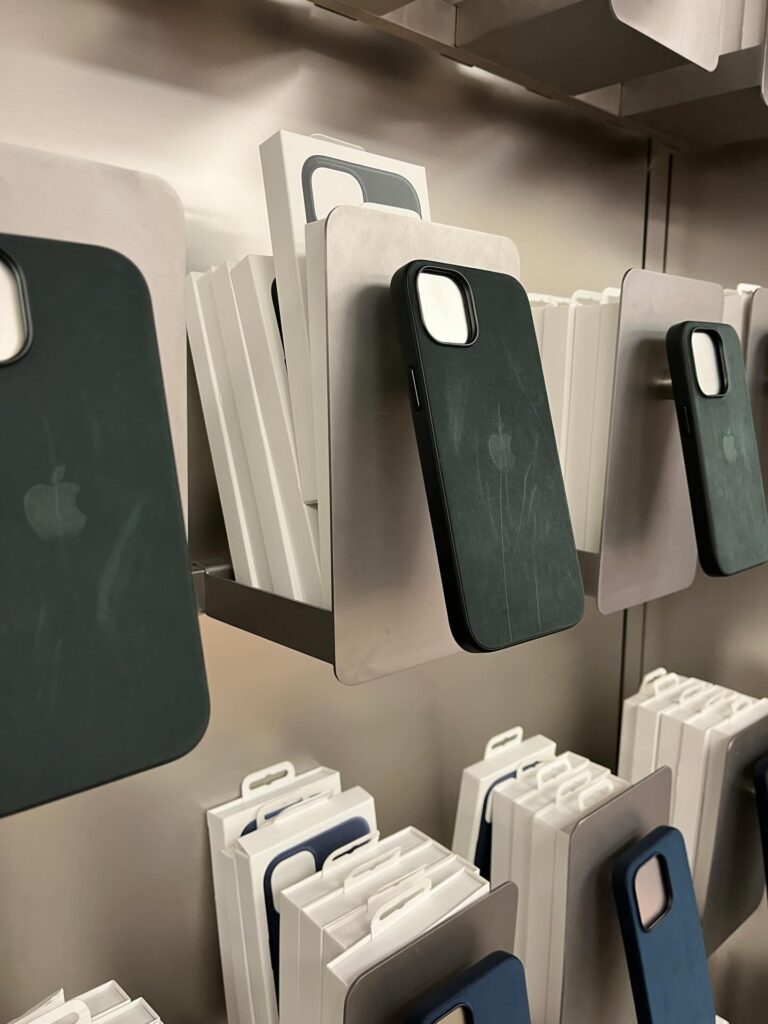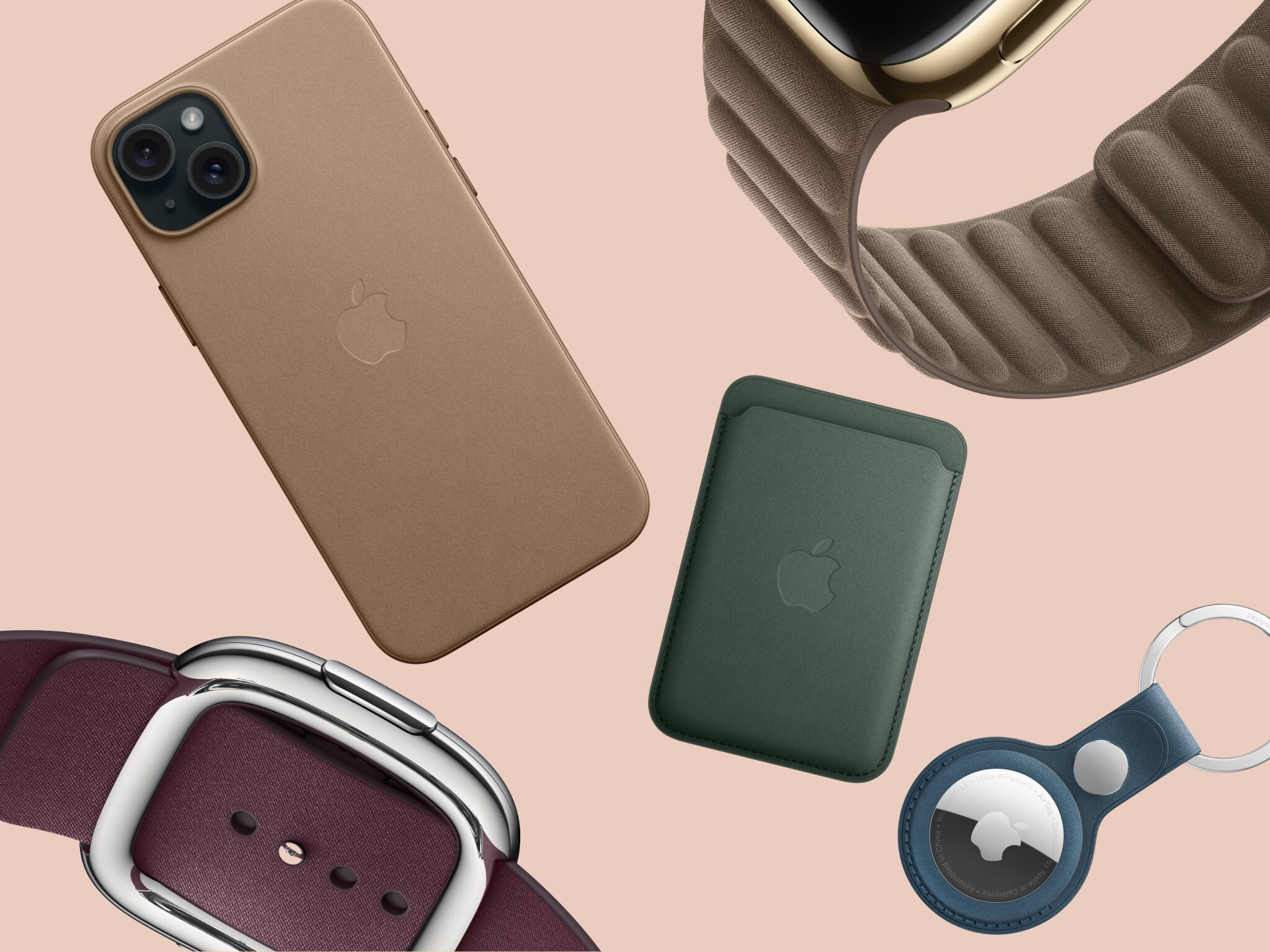After Ditching Leather, Apple Nixes Vegan FineWoven Alternative Too – It’s A Big Miss
5 Mins Read
Apple has stopped production of FineWoven, its eco-friendly alternative to leather for iPhone and Apple Watch cases, after complaints about its performance and durability.
“Goodbye Leather.” This was Apple’s message in a short new ad released last week. The tech giant was promoting its move to ditch the material from its entire product line.
But there was one glaring omission. The ad made no mention of FineWoven, Apple’s first innovation designed to replace leather. You’d think a commercial about scrapping leather would promote an alternative material the company was actively selling.
That’s the thing, though: it doesn’t feel like it’ll be selling it much longer, with the Cupertino-based firm reportedly halting production of FineWoven cases for its phones, watches and accessories, after months of incriminating reviews from dissatisfied customers.
Cardboard-like material with ‘insulting’ price
The tech leader had announced the FineWoven cases at its September event (headlined by the iPhone 15 launch), as part of its efforts to become carbon-neutral by 2030. “Leather is a popular material for accessories, but it has a significant carbon footprint, especially at Apple scale,” Lisa Jackson, Apple’s VP of environment, policy and social initiatives, said at the virtual event. “To reduce our impact, we will no longer use leather in any new Apple products, including watchbands.”
FineWoven was described as a microtwill fabric with a suede-like texture and “significantly lower emissions” than leather. It was made from 68% post-consumer recycled content, though it isn’t clear how much of that was bio-based, and if there’s any plastic involved.
The move signposted Apple’s strategy for the post-leather landscape, with the company hoping to meet its climate goals alongside some financial gains. But on Sunday, Twitter/X user and known Apple leaker Kosutami posted an update on the new eco-friendly material. “FineWoven is gone. Since its durability were bad [sic],” they wrote.
“All the production line was stopped and removed. Apple would move to another material – again, not the leather,” they continued.
FineWoven has gone.
— Kosutami (@Kosutami_Ito) April 21, 2024
Since its durability were bad.
All the production line was stopped and removed.
Apple would move to another material—Again, not the leather.
So see ya'll in leather hell.
(Recycling Company) pic.twitter.com/KVaBZC6z6S
For context, Kosutami had unveiled Apple’s plans to introduce the woven fabric on new Apple Watch bands weeks before they were announced, while they also leaked the first images of FineWoven accessories ahead of the event. Given the account’s previous credibility on this topic, it’s thought that this news is accurate as well.
And for many, it does not come as a surprise. Right from the get-go, the FineWoven cases were panned for their seemingly poor quality. Many questioned the premium price point (they cost $59 for iPhone cases and $99 for Apple Watch bands) for a product that felt much more run-of-the-mill than leather.
One customer compared it to cardboard and another likened it to “a polyester pillowcase sandwiched in a plastic shell”, calling the $59 price “insulting”. FineWoven products reportedly have high return rates, with complaints over dust retention, permanent scratches, the slippery texture, and a general lack of durability.
Apple’s FineWoven represents a missed opportunity
One of the most damning indictments came from The Verge writer and tech reviewer Allison Johnson, who labelled the FineWoven cases “really bad”. “Apple did a decent thing by discontinuing the leather cases, but FineWoven is just not the premium replacement we were looking for,” she wrote, describing how she was seeing signs of wear and bits of lint on newly unboxed cases.
“And then there’s the fingernail test,” she continued. “If I’m putting one of these cases on my phone, I’m inevitably going to scratch it on accident with a jagged fingernail edge, or it’s going to come into contact with my car keys. And when you scratch FineWoven, the results are seemingly permanent.”
The review criticised the high markup of the product, which has turned out to be the camel that broke the straw’s back. Studies show that consumers are willing to pay more for environmentally friendly products – especially Gen Z, nearly half of whom would shell out more for something greener. That’s great for Apple, considering its hold on this demographic (87% of American Gen Zers have an iPhone).

But if a sustainable product doesn’t give people the same feel and satisfaction they’re used to, it’s not going to work. People already think eco-friendly products cost too much and, traditionally, they can be perceived as inferior, whether that’s in terms of quality or appearance. As ideas go, FineWoven was a fine one, but the execution has been a sizeable (and loud) misstep, which won’t bode well for how the alternative leather industry is perceived.
Producing leather, which is derived from animal hide, takes up a lot of energy and water, is linked to deforestation and biodiversity loss, and produces health-harming chemicals during tanning. It also has a much higher carbon footprint at 110kg of CO2e per sq m, compared to synthetic and plant-based alternatives.
So any efforts to remove leather from the consumer cycle are a good thing for the planet. But they need to satisfy people with their quality, especially if they carry a premium markup. While Apple’s FineWoven stock runs out (if the rumours are indeed true), it’ll be interesting to see where it goes next. Is there a new, better FineWoven 2.0? Will the company partner with one of the many market-proven startups making vegan leather? Or is this all just a ruse and FineWoven is – in Apple’s opinion – just fine?
And what of its collaboration with Hermès, which was to make four new Apple Watch bands with climate-friendly materials? A lot of questions remain, but we’re likely to be kept in the dark until September, when the company refreshes its lineup with iPhone 16 and the Apple Watch Series 10.




